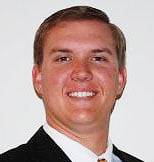This post was adapted from an article published in the new edition of InTech Plus, ISA’s mobile magazine app for Apple and Android tablets. The article was written by Jim Garrison, PE, CAP, CFSE, senior specialist with aeSolutions in Greenville, S.C., and VP-Elect for the Professional Development Department of ISA.
First off, hello and welcome to the field of automation (or instrumentation and controls, or electrical and instrumentation, or process control  technology, or any of the other myriad names that our profession goes by). As you have probably already begun to notice, the paths that people take to get into this field can be as numerous as the people you ask. This diversity of educational and professional backgrounds is one of the great attributes of our field and it will allow you the opportunity to learn from a broad base of knowledge and experience that is uncommon in many other fields of engineering.
technology, or any of the other myriad names that our profession goes by). As you have probably already begun to notice, the paths that people take to get into this field can be as numerous as the people you ask. This diversity of educational and professional backgrounds is one of the great attributes of our field and it will allow you the opportunity to learn from a broad base of knowledge and experience that is uncommon in many other fields of engineering.
If you will allow me, I would like to share with you a few items that I have discovered thus far in my career that have helped me greatly. These items apply regardless of your area of focus, and I hope they will help you throughout your career.
Seek out knowledge. It has been said that 80 percent of engineering is learned after you graduate. In our field, I would propose that this number is even higher.
If you like Jim’s perspective on an engineering career, you’ll find even more great content packed into InTech Plus, ISA’s mobile magazine app for Apple and Android tablets. It’s free! Click this link for more info plus download links to get the app.
Learn from those around you, learn from your work, and take initiative to learn on your own, outside of work hours if necessary. One easy way to make a good impression on coworkers and management is to do your homework. If you are going to be working with a new piece of equipment, spend a few evenings reading the manual. If your work is governed by standards, read the standards. Spending an evening cuddled up on the sofa with a manual or an OSHA or ISA standard may not be sexy, but doing this will allow you to form your own opinions and articulate those opinions from a solid basis rather than relying on the interpretation of others.
Branch out and study non-technical topics. Regardless of your current position, you will undoubtedly find yourself in a position of leadership at some point in your career. Whether you end up in technical leadership, staff management, or business management, studying leadership and management theories and principles will help you become more effective. Also, developing leadership skills early in your career can accelerate your professional development.
https://youtu.be/L0J4Zl8FmLs
Focus on effective communication. Communication is a daily activity that we seldom scrutinize, yet this one area often separates good engineers from great engineers. Communication can be the difference between an amazing idea being buried in someone’s inbox or being used to change a project, a company, or an industry. Study the communication styles of those around you, and learn how to interact with them. If, for example, you have a client who always checks email from their phone and generally reads only what displays when the email opens, then craft your emails to present the most important items on the first screen instead of burying them at the bottom of a half-page-long memo. In verbal communication, something as simple as how you respond when you think someone is wrong can either alienate them or strengthen your relationship with them and their confidence in you. Always remember that criticism should be constructive.
Strive for excellence in all that you do, even if it seems menial or unimportant at the time. Whether you like it or not, your reputation and how others think of you is influenced by how they perceive all of the work you do. Take ownership of all your tasks and projects. Attention to detail and quality of work heavily influence the expectations and confidence that others have in you, especially early in your career. As you progress in your career, don’t be content to settle at one level. Don’t accept the status quo; seek continually to do things better, more efficiently, and with improved quality.
Get involved. Whether it is with ISA or some other organization (IEEE, AIChE, etc.), get involved. Involvement in a technical organization opens up many opportunities for growth, but, more importantly, it will provide you with exposure beyond your company or plant. Seek out opportunities to get involved with the leadership, governance, and operations of the organization and learn from those leaders already serving. The skills that you gain from working with these groups outside of your “day job” will prove to be enormously beneficial in your professional career.
Good luck as you embark on your career. The field of automation is one in which there will always be a challenge to overcome and a problem to solve. It is also a field in which you will be exposed to many facets of projects, operations, and industry, not to mention some of the most interesting people you will ever run across. Learn as much as you can from your work and from these people, and use this knowledge when making decisions. You will be an immeasurably better engineer for it.
See you in the field.
About the Author Jim Garrison, PE (S.C.), CAP, CFSE, is a professional engineer, a certified automation professional, and a certified functional safety expert with nine years of experience in engineering, engineering consulting, and construction in the power and chemical industries. Jim is a senior specialist with AE Solutions in Greenville, S.C., and he is currently the VP-Elect for the Professional Development department of ISA.
Jim Garrison, PE (S.C.), CAP, CFSE, is a professional engineer, a certified automation professional, and a certified functional safety expert with nine years of experience in engineering, engineering consulting, and construction in the power and chemical industries. Jim is a senior specialist with AE Solutions in Greenville, S.C., and he is currently the VP-Elect for the Professional Development department of ISA.



